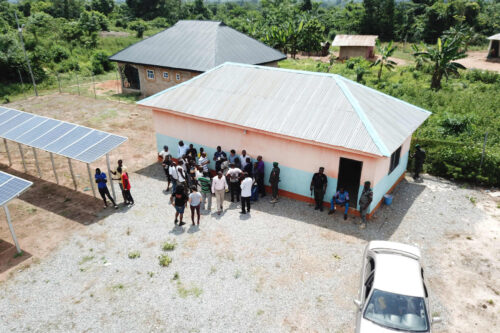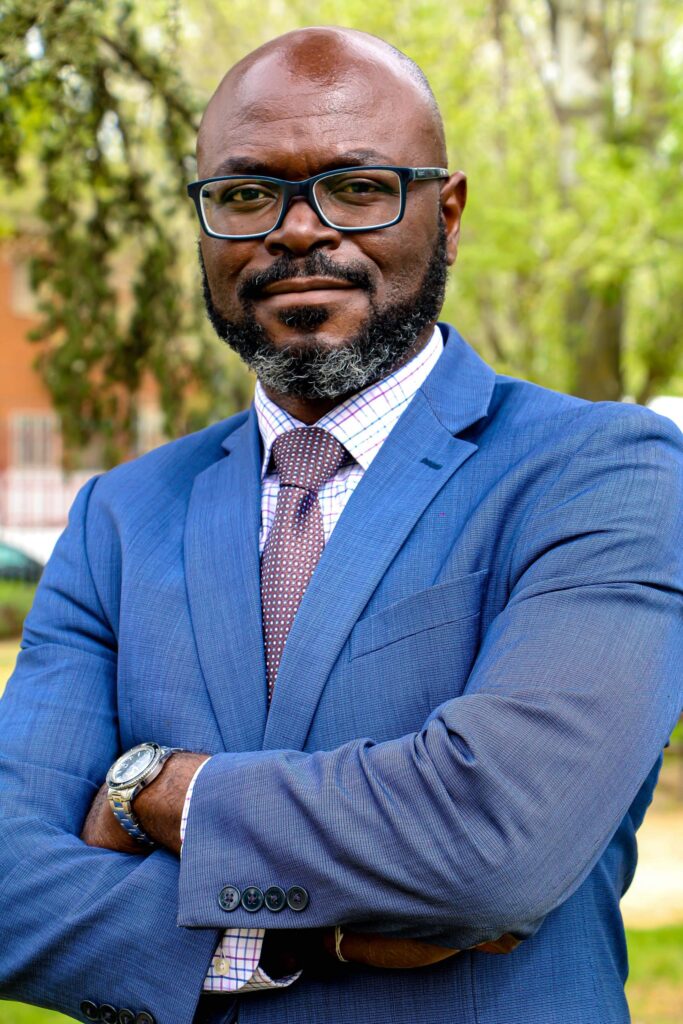
Raul Alfaro-Pelico: Bringing a Global Perspective to RMI’s Energy Transition Academy
Meet Raul Alfaro-Pelico, who recently joined RMI to head up its net-zero and just energy transition leadership efforts as senior director. Raul brings more than two decades of global experience at multinational companies, multilateral organizations, and multidisciplinary research institutions. But he also brings his personal and professional perspective after living in Spain, England, Equatorial Guinea, Namibia, Panama, and the United States, and working across the globe.

In this Q&A, Raul shares what inspires him, his own energy transition to RMI, and his vision for the Energy Transition Academy (ETA). The ETA aims to empower global leaders to accelerate the energy transition with a unique focus on developing the workforce of tomorrow, today.
What has been your personal energy journey?
It’s one that hasn’t really followed a linear pattern. My career has navigated through multiple industries (energy, finance, infrastructure, agroforestry, manufacturing) and sectors (public, private, public, civil society, research and academia), across all regions (the Americas, Europe, Middle East and Africa, Asia-Pacific) — but the journey has always centered around leading a net-zero path.
One key part of my inspiration to work in the energy sector came from my late father. He was a petrochemical engineer from Malabo, Equatorial Guinea. He started his own transition studying across the USSR. His journey took him from Kyiv, Ukraine, to Moscow, Russia, and then Baku, Azerbaijan, home of the Soviet Union’s Petroleum Academy. Although the oil and gas sector took him to more places around the world than my own UN system career combined, when he returned back home one his first projects was in hydropower.
His journey sets the stage for my path. As an African born in Madrid, my dad’s intellect, lateral thinking, and multilingual capabilities shed light on key skills needed to get to net zero. I had and continue to have a rare passion for natural resource economics since I was a child. My mum would watch the news on TV and I kept wondering why the oil price was reported every day. The curiosity was far removed from my own reality, until I realized that when the price went up, a bag of chips that I would buy at the local grocery would be more expensive, just because of the plastic in the packaging. Well, maybe not what a typical child would be thinking about, but being conscious of my little pocket money, it made a difference to me.
Because of this consciousness, I later graduated in business in Spain and earned a postgraduate degree in economics in England. Due to my passion for Africa and its rich nature, my research focus also gravitated toward development and environmental considerations. I incidentally ended up where my dad started, by pursuing doctoral studies in engineering, but trying to shed further light on the barriers to the deployment of renewable energy in the Global South.
What made RMI the natural next step in this journey?
In 2014, I was promoting sustainable energy investments in Latin America and the Caribbean at the UN. The target was primarily government counterparts, on one hand, and investors on the other. RMI did not belong to either of these stakeholder groups, but proved more successful in advancing the energy transition in island nations, whose focus was on adaptation and resilience. When I came across RMI’s impact in the region at the Caribbean Renewable Energy Forum, and its success in changing mindsets through the Ten Island Challenge concept, our joint effort to make that idea a reality came to fruition when we secured funding from the Global Environment Facility – this helped transform my own perspective on how to fast-track the net-zero transition.
While engaging the private sector was critical, with RMI we were able to take these conversations to prime ministers in the Caribbean as well as global leaders in philanthropy such as Sir Richard Branson, who was heavily involved with Carbon War Room, which later merged with RMI. Since I left the UN, I’ve witnessed how energy has become a key priority for island economies and developing countries. It just shows the relevance that RMI’s work has in these geographies.
Looking at where I could have the most impact in the energy transition, having been in and out of the private sector (Acciona, Glencore, Noble Energy, Exxon Mobil Corporation), research entities (Drexel, Arcadia, and Lancaster universities, The Economist) and development banks (World Bank, International Finance Corporation, Inter-American Development Bank), it just seemed natural to bring that experience to an innovative organization, backed up by cutting-edge research and insights, that seeks to become truly global. One of the things that I want to bring to RMI is that worldwide perspective.
What is your vision for the Energy Transition Academy?
The Academy was set up to develop capacity across developing countries, but also to accelerate the pace of the energy transition around the world to expand its scale and impact.
COP27, in Egypt later this year, will focus heavily on the Global South — and on Africa specifically. It will also have a clear focus on implementation. I think there is quite a bit of fatigue in terms of plans, targets, pledges, and ambitions that haven’t been realized. So it’s important that everything we are currently doing across island regions, the African continent, or Southeast Asia is responsive to that.
We know the technologies that can help get us to net zero. However, there is not enough focus on the people. In the Global South, it’s the people who, in addition to addressing their existing challenges of energy access and poverty alleviation, are now being asked to become net zero. I don’t think that will be possible unless people take center stage in the process. And that’s where I see the academy being positioned. It’s about being more bottom-up than top-down. And with nearly 600 million people lacking access to energy in Africa, it’s also about being consistent with not only future but also current demands.
Academies are places of instruction, but they are also places of invention, creation, science, and arts. And this is something I really want to see: creativity. Part of that creativity will come from having the Global South lead the decision-making around how to implement and make the net-zero transition a reality.
Right now there are all kinds of gaps in the Global South in terms of access to finance, technologies, and ensuring the net-zero transition results in just and equitable outcomes. RMI can’t address all these gaps on its own. A big part of our strategy is to partner with others working in this space — particularly in the Global South.
What books or talks have inspired you in your work?
Amory Lovins’s TED talk on Reinventing Fire has been quite inspiring for me — not just the talk but all of the work that he has delivered as a result of the vision that he laid out 40 years ago, coming out of the oil crisis of the late 1970s. That vision has a lot of currency today.
One book that is relevant to my vision is Green Swans, by John Elkington. Coming out of COVID, he talks about the importance of focusing on recovery and resilience. But he also challenges us to go beyond resilience to focus on regeneration, a key word for what I hope the academy accomplishes. It is our intention that through our work we inspire others to be regenerative.